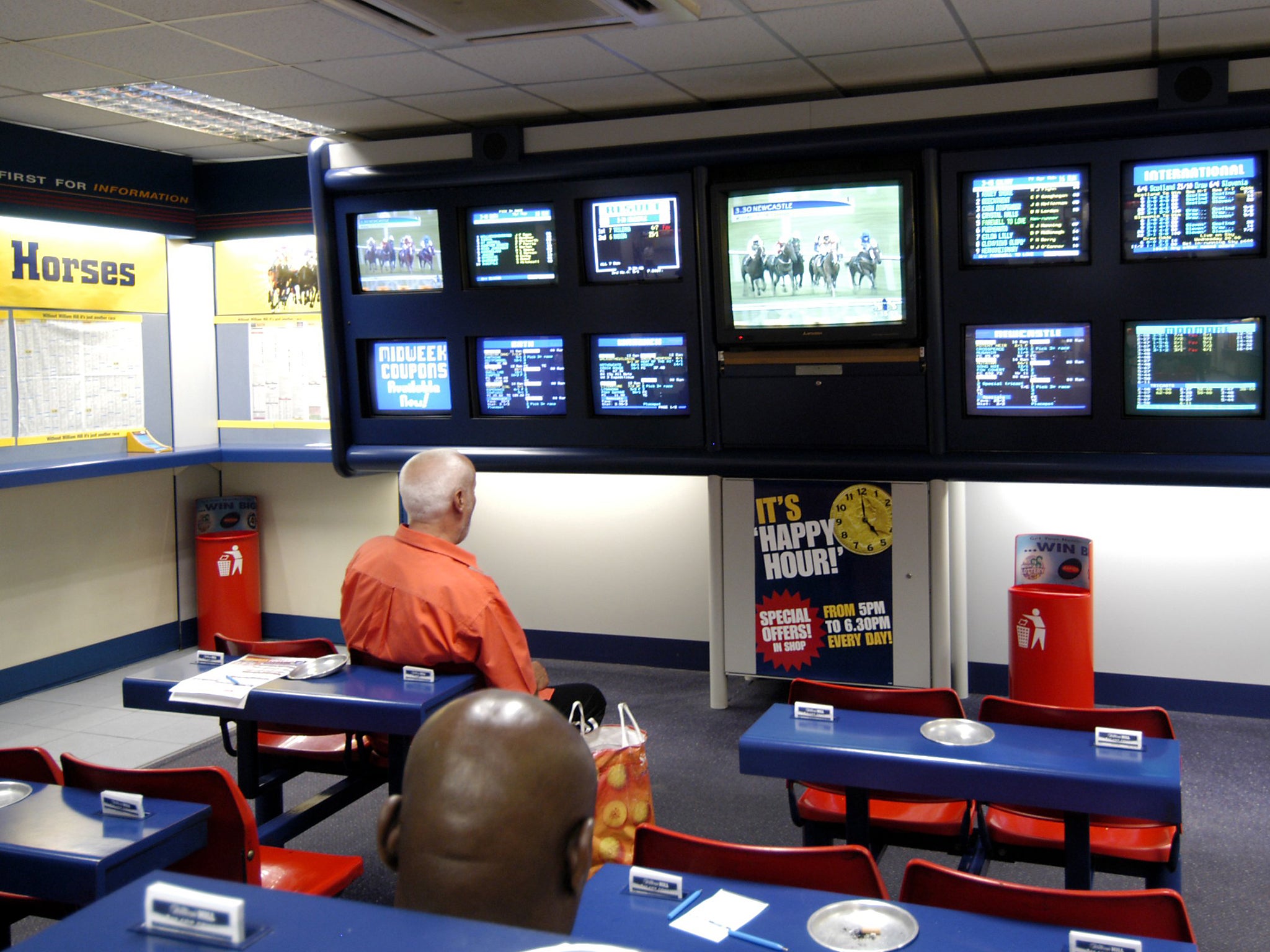Will bookmakers' pledge of millions to address problem gambling buy off their critics?
The biggest five will eventually pump £60m a year or more into treatment and other iniatives to create a "safter gambling environment" under an inititaitve brokered by the Department for Culture Media & Sport

Your support helps us to tell the story
From reproductive rights to climate change to Big Tech, The Independent is on the ground when the story is developing. Whether it's investigating the financials of Elon Musk's pro-Trump PAC or producing our latest documentary, 'The A Word', which shines a light on the American women fighting for reproductive rights, we know how important it is to parse out the facts from the messaging.
At such a critical moment in US history, we need reporters on the ground. Your donation allows us to keep sending journalists to speak to both sides of the story.
The Independent is trusted by Americans across the entire political spectrum. And unlike many other quality news outlets, we choose not to lock Americans out of our reporting and analysis with paywalls. We believe quality journalism should be available to everyone, paid for by those who can afford it.
Your support makes all the difference.The wolves are at the doors of Britain’s bookies. To keep them at bay, the five biggest have agreed to pony up £60m a year to fund “an expansion of treatment for problem gamblers and initiatives to create a safer gambling environment”. Whatever that means.
The sum equates to 1 per cent of what the five, William Hill, Sky, bet365, Flutter (Paddy Power and Betfair) and GVC (Ladbrokes and Coral) win from punters.
Although the full amount won’t be payable for four years, that amounts to a ten fold increase over the current 0.1 per cent they pay out.
There is the potential for the sum to reach £100m or more if the Department for Culture, Media & Sport, which brokered the deal, can chivvy some of the industry’s other big players into joining the party.
In addition to setting targets for increasing the number of people getting treatment, the five have also agreed to share data on problem gamblers. That’s a particularly important step when it comes to identifying them and shouldn’t be underestimated. It could prove to be as significant as the funding increase.
The industry has already had to accept tough limits on how much punters can stake via Fixed Odds Betting Terminals (FOBTs), and a whistle to whistle ad ban during live sporting events as the evidence of the harm problem gambling can cause has mounted.
The figures the Gambling Commission has produced when it comes to young people are particularly disturbing. A report by the watchdog last year found the equivalent of 450,000 11-16-year-olds were rolling the dice in some way during a given week.
More disturbing still was the suggestion that 1.7 per cent of that age group could already be problem gamblers - more than 50,000 - with an even larger number in the at risk category. Across all age groups there are thought to be comfortably over 400,000.
As one of the industry’s customers who, as the ad urges, has always gambled responsibly I was once in broadly in favour of liberalisation but the evidence of the harm it can cause has forced a rethink on my part.
The gambling industry has also made some notable missteps in recent years, particularly its fierce opposition to the FOBT clampdown, which turned into a PR disaster. The recent high profile withdrawal of a high stakes betting game by two bookies in the wake of a warning from the Commission really didn't help.
It raised questions about whether they've really learned anything. Still, the money they are handing over may buy some time, which matters given their current push into the US.
But not for nothing has the industry’s position been likened to where the likes of alcohol and tobacco were several years ago. Those industries also made noises about funding initiatives to prevent harm. They helped to hold back the damn for a while. The flood still eventually came.
I wouldn’t put too much money on this initiative buying off the critics, who have recently been taking aim at shirt sponsorships and pitch side ads, for long if at all.
Join our commenting forum
Join thought-provoking conversations, follow other Independent readers and see their replies
Comments